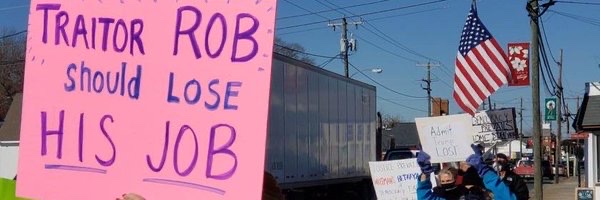
On January 6, an insurrectionist mob stormed the US Capitol building in an effort to stop the Electoral Vote count that would make Joe Biden President. Several groups, including the Oath Keepers and Proud Boys, planned a coordinated attack in response to an intentionally promoted Big Lie: that Democrats and others used systemic fraud to steal the election from Donald Trump. Planners did not intend to protest peacefully – they wanted to overthrow the results of an election because they did not like the result.
They wanted to overthrow a democratic election, and they said so on social media:
Reuters Staff, Reuters
Donald Trump was not the only elected official telling this lie – other American political leaders, including First District Congressman Rob Wittman, helped set the conditions for the storming of the Capitol. Wittman had the power – and the obligation associated with that power – to stop this. He refused to publicly accepting the results of the 2020 election (which he was happy to do with respect to his own race, by the way).
Instead, he supported this false narrative of a fraudulent election by objecting to the counting of Pennsylvania’s Electoral Votes on the grounds that the State “failed to follow the laws and constitutional tenets that govern its elections. Worse, he still refuses to calm divisions by publicly accepting the results of the free and fair election that made Joe Biden President and kept Wittman in Congress.
Continue reading